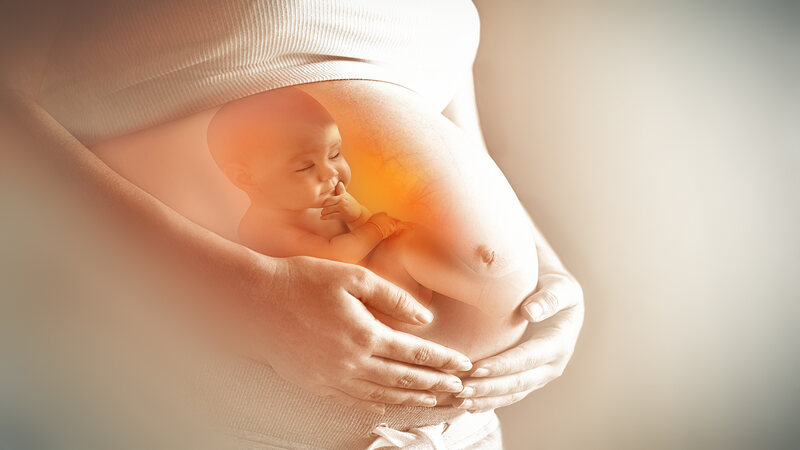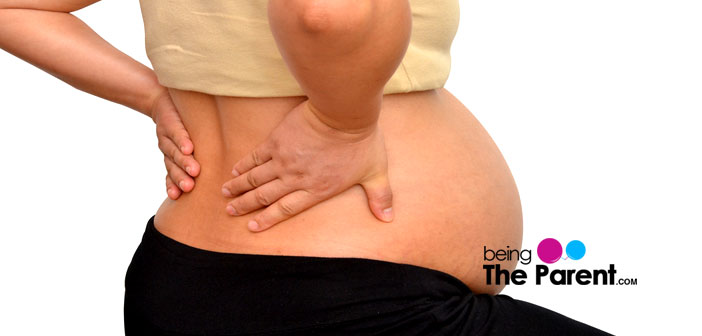
When you are pregnant, drawing closer to due date conveys mixed feelings, which can range from excitement, enthusiasm, nervousness and finally even to fear and apprehension. Counting for the signs of labor is quite important during this time. One of the principal signs that indicates your body is getting ready to give birth is, dropping. This usually marks the beginning of labor.
What Is Meant By ‘Dropping A Baby’?
The term ‘dropping a baby’ indicates a condition in which the baby descends to the birth canal and settles its head into the pelvis. It is also called ‘lightening’ as you feel so lightened (as the heartburn tends to disappear and you will feel much better as the uterus applies less pressure on your stomach) during this time of pregnancy. Generally, you will notice this condition, as the stomach begins to hang lower than before.
Can I Physically Recognize The Signs Of Dropping?
No. If this is not your first pregnancy, the abdomen will not indicate much change as the baby drops. In addition, if you are already carrying too low, you may not be able to tell the differences. Nevertheless, mostly during the first pregnancy, the other members of the household, especially the elder members, may spot the difference as soon as the baby drops.
When Does The Baby Drop?
It is difficult to say absolutely when your infant will “drop” or descend into your pelvis, on the grounds that each pregnancy is different. In the case this is your first child, the dropping or lightning will happen 2 to 4 weeks before labor time. However, if this is not your first pregnancy and delivery, it’s quite normal that the lightning or dropping happens just before the labor starts.
What Are The Signs Of Baby Dropping During Pregnancy?
By what means will you realize that your infant has dropped? You will need to search for physical and even emotional hints to tell if the baby has dropped as of now. A few signals will let you know that your child has begun her descending trip. You may find that you feel somewhat distinctive after your infant has dropped. Some pregnancy issues may deteriorate (uneasiness related to lower abdomen increases), while others (uneasiness related to upper abdomen decreases) may become better.You may experience the following signs as your baby drop:
- The shortness of breath disappears: The breathing issues that troubled you (more) towards the last trimester of pregnancy will start to disappear. You will be able to breathe more easily when the baby drops. This is because, as the baby drops into the pelvis, the pressure, which is applied by the baby on the ribcage and lungs of the mother, will be negligible. This will permit the mother to breathe well
- The pelvic pressure will increase: Once your baby drops, the pressure on your lungs and stomach backs off significantly, you will start to experience acute pressure on your pelvis.During this time, you will start to develop pregnancy “waddle” and start to walk like a penguin or duck. You may probably feel like strolling around with a bowling ball between your legs. Closing the leg will be almost impossible. Sudden sharp pain localized in the pelvic area can also happen as the head of the baby presses against lots of ligaments of the pelvis
- Pregnancy bump starts to hang down: Apparently, the “hanging down” pregnancy belly indicates the baby dropping during pregnancy
- Frequent urination: Your urge to urinate will already increase once you enter your third trimester. However, it will increase significantly and noticeably after the baby drops. That is typically in light of the fact that when your child drops, it assigns more weight on your bladder
- The appearance of hemorrhoids and constipation: Dropping of the baby increases the chances of hemorrhoids and constipation towards the last weeks of pregnancy. This is because as the baby drops, along with the pelvis, the rectum will also experience the increased pressure of baby’s head
- Increased appetite: After your baby drops, you will actually be able to savor your meal. It will be essentially not the same as how you feel amid your third trimester when it is practically difficult to eat a complete meal. This is because, the pressure on the stomach releases after the baby drops. You will also see the odds of heartburn noticeably decrease
- Changes in vaginal discharge: You will experience increase in the vaginal discharge as the baby drops. Not only has the quantity of the discharge increased, but also its appearance changes. It will turn out to be thicker and may have pieces of mucus plug. This happens when the head of the baby presses against the cervix, which in turn thins out by getting rid of mucus plug
- Severe lower back ache: Dropping of the baby changes the position of the uterus, thereby, shifting your center of gravity. This will put additional pressure on the lower back muscle. Severe lower back pain will be the outcome

My Due Date Is Two weeks Away, Yet The Baby Hasn’t Dropped
Even after crossing the 36th week, if there is no sign of the dropping of the baby, you can use some steps to encourage the baby to drop. First, ensure that the doctor knows what you are trying to perform. Always follow the doctor’s advice and each time get permission from your doctor for every new step you are about to take. Here are a few steps you can take to speed up the dropping of the baby:
- Increasing your physical activities will help to speed up the dropping of the baby. However, activities, which need great effort or exertion, should be kept off. Strolling around more often is a good and comparatively harmless physical activity
- While sitting, sit with the knees spread open. Try to lean forward maximum (until your comfortable level). This will help the baby move faster towards the cervix, quickening up the baby’s dropping
- Never cross the leg when you are sitting down, as it will create a pressure pulling the baby away from the cervix
- Using a birth ball for sitting and doing simple exercises with it, will help to expand the pelvic canal around 30%, and thereby, encourages the dropping of the baby
- Taking squats, will helps expand the pelvic opening and pull the infant closer to it. They will also help to increase the strength of your legs and get your hips prepared for labor.However, do not begin doing squats all of a sudden (unless you have been practicing all through pregnancy). Also, don’t do it without your doctor’s permission
What Should I Do When The Baby Drops?
Once you believe that your baby has dropped, tell your doctor immediately without waiting for next (weekly) appointment. He will examine you and affirm the development. If everything is on the right track, you ought to begin planning for labor and birth. Get your hospital bag ready.
If you noticed the signs that indicate ‘lightening’ before 30 weeks of pregnancy, seek immediate attention of your doctor. In the event that he believes that you are in a danger of giving birth prematurely, he may propose certain preventive measures.

